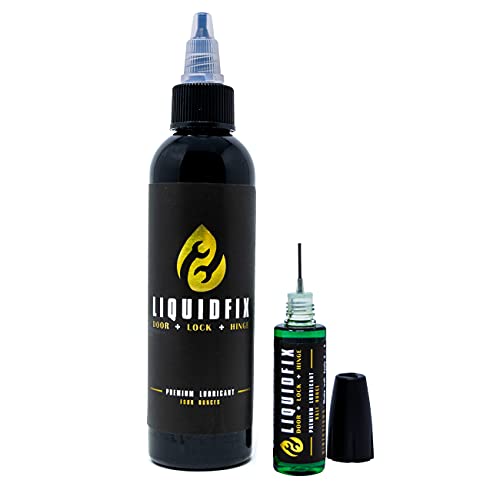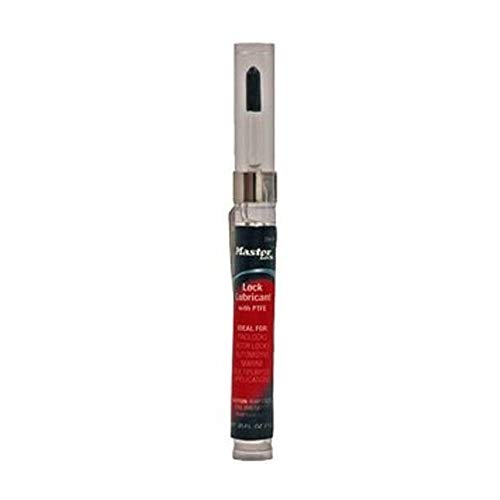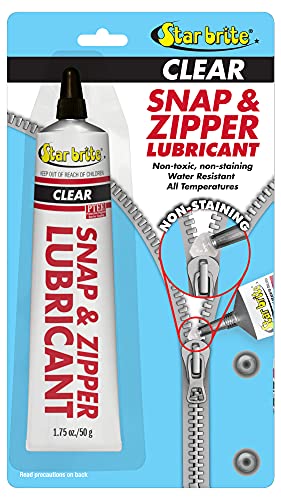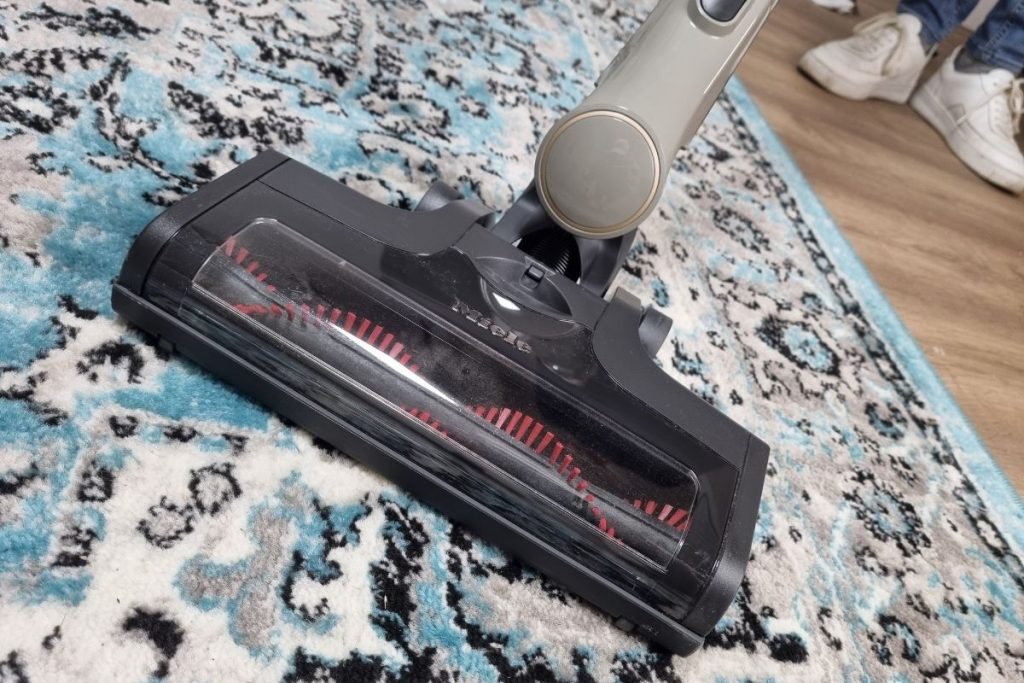Top 12 Best Lubricant For Door Locks Of 2024
Sonya Harris May 15, 2024 10:18 PM
Using the internet, we discovered how many possibilities are there. Even we got lost: the competition is tough. So, we laid out criteria to choose the best lubricant for door locks. The criteria were fairly simple: get the most bang for a buck, have great performance and user reviews.

Overview
Your lock may be in need of some lubricant if you're having difficulty inserting and extracting your key, or if you experience a grinding sensation when you turn the key.
Is there a specific lock lubricant we need to use, or will any lubrication do?
The best dry lubricants for locks are graphite or Teflon, which don't leave an oily residue and don't damage the locks. Dust, hair, and even pocket lint can accumulate in oil-based treatments, causing more accumulation in your hair.
Alternatives exist on the market, though, and they may be more readily available in your area as well as working just as well.
You can learn about the best lock-lubricants available, as well as those that operate best in various situations (e.g., indoor/outdoor, climate) by reading this guide.
The time has come for action!
- SCORE9.4
- BrandKrytox by Chemours
- Prime
- SCORE9.4
- BrandN/A
- Prime
- SCORE8.8
- BrandLeafy
- Prime
- SCORE8.8
- BrandB'laster
- Prime
- SCORE8.6
- BrandLeafy
- Prime
Last update on 2024-05-15 / Affiliate links / Images, Product Titles, and Product Highlights from Amazon Product Advertising API
Types of Lock Lubricants
The same cannot be said with lubricants. Some are better suited to certain tasks than others, but which are the most effective when it comes to locking mechanisms?
To help us decide which lubrication to use in our locks, let's have a look at the four distinct types of lubricants and how they work.
Dry Lubricants
In order to reduce friction, dry lubricants consist of small solid particles that are sufficiently slippery to act as lubricants.
Graphite, PTFE, silicone, and Teflon are the most popular forms of dry lubricants (branded PTFE).
To keep your locks free of debris such as dust, hair, and even bug carcasses, use only dry lubricants. These products don't leave an oily or greasy residue behind. This helps prevent corrosion because they don't gather or hold water.
Penetrating Lubricants
In general, penetrating lubricants such as WD-40 aren't meant to last.
Oils meant to penetrate the tiniest gaps between components and give temporary lubrication aren't what we're talking about. Rust and other forms of corrosion can be broken down more easily with the addition of these chemicals.
However, while using penetrating lubricants will provide temporary relief from friction, the oily residue they leave behind is a breeding ground for dirt and grime.
Oil Lubricants
lubricants are thin liquids that minimize friction, heat and wear between parts. In terms of viscosity, they come in a variety of "weights" (e.g., 20W, 10W, 5W).
Even though lock oils are great for keeping your locks lubricated, dust, grime, and other impurities gather in them, and this may quickly gum up the internal components.
As a bonus, some oils are excessively thick or harsh, and this might slow down the movement of your lock by making it difficult to open and close.
Graphite Powder
When it comes to door locks, Graphite powder lubricant works like magic. In order to get the most out of the powdery texture, you must squeeze it properly. Because it doesn't feel sticky like other lubricants, graphite powder lubricant unlocks the jam in the door lock.
A little graphite powder also ensures long-term performance.
Silicone Lubricant
Because of its superior texture, silicone lubricant is a widely used lubricant all over the world. It's not tacky or unwelcoming at all. A further benefit of silicone lubricant is that it dries quickly. Because of this, it doesn't just keep the surface clean; the dust and particles don't attach to it either. Silicone lubricants also protect metal surfaces from corrosion and rusting. The lubricant is already outstanding due to its protecting properties.
What are some things to consider when purchasing a lock lubricant?
A lock lubricant purchase is more complicated than it appears. You may want to consider the following aspects while deciding which lock lubricant is best for you:
Straight Straw or Flexible Straw?
Think about what kind of straw is included with the lock lubricant you're planning to purchase. This decision can be made by considering additional uses for the lubricant. Consider what else you might use it for besides locks, and also consider what kinds of locks you might use it on. Locks with a lot of moving parts and complex systems might be difficult to open. If you use a lock lubricant with a straight straw delivery system, it may be difficult to reach them.
Legality
Depending on where you live, the laws governing the production of lubricants can be vastly different. Lock lubrication brands that adhere to the law are the most trustworthy. You should, however, check your local laws before placing an order, especially if you're shopping online.
Weather
It's critical to think about the climate in your area before investing in a lock lubricant. Many common lock lubricants lose their effectiveness as the temperature drops below freezing. This is due to the fact that at lower temperatures, their reaction with the lock's surfaces is retarded. If you reside in a colder zone, you should look for and purchase a particular lock lubricant made for that climate.
Performance Level
The lubricant's ability to displace water and prevent corrosion determines its performance level.
Door locks, hinges, and other metal parts can benefit from the application of this lubricant. It makes it easier to open and close doors, and it also helps keep them from rusting.
Ease of Application
All moving elements in your lock are considered when determining how easy it is to use the lubricant.
Expiry Date
When purchasing lubricant, the expiration date is an important thing to keep in mind. Based on its expiration date, select the best door lock lubricant.
A good lubricant for your lock is the best thing you can do for yourself. To determine how long a lubricant can be used, the expiration date is quite crucial.
A longer-lasting lube will save you money in the long run by reducing the frequency with which you have to replenish the lube.
Should I use graphite or WD40 in my locks?
Graphite is preferred to WD40 by most individuals when it comes to repairing their locks. For the most part, this is due to the fact that graphite lubricant is designed specifically to be used to repair locks. You can pick it up from any hardware store and put it on your door lock right away. Simple. WD40, on the other hand, will gum up every time you put it on the door locks because it is an oil-based lubricant.
Which types of lubricant are best to use for outdoor locks?
Outdoor locks require a lubricant that can withstand the varying weather conditions they face on a daily basis. For both indoor and outdoor lock applications, graphite is an excellent choice of material. It's only that many people are wary of graphite due to its toxicity. Teflon-based lubricants are an excellent option in this situation. It is also possible to use grease lubricants, but they tend to be a little greasy because they contain a lot of oil.
Is silicone lubricant good for locks?
Non-toxic and non-reactive, silicone oil is an excellent lubricant. Using it on plastic parts and lubricating locks and hinges is a terrific usage for it because of its characteristics.
How Often Should You Lubricate a Door Lock?
Corrosion might occur if lubrication is performed too frequently.
When you encounter any resistance when trying to open or close the lock, it's time to lubricate your door.
A lubricant that is safe for your door and your privacy is a must-have for any homeowner. In addition, the proper lubricants are needed for long-term performance of your door. Lubricants that do not include any oil or other sticky ingredients can be used, such as silicone lubricant. Our favorite lubricants have previously been highlighted.
These lubricants are completely risk-free and extremely efficient. In addition, they have a simple application method and dry quickly, giving a buttery smooth texture. Make your door locks' duty easier by choosing from the list of the Best Lubricant for Door Locks.




























